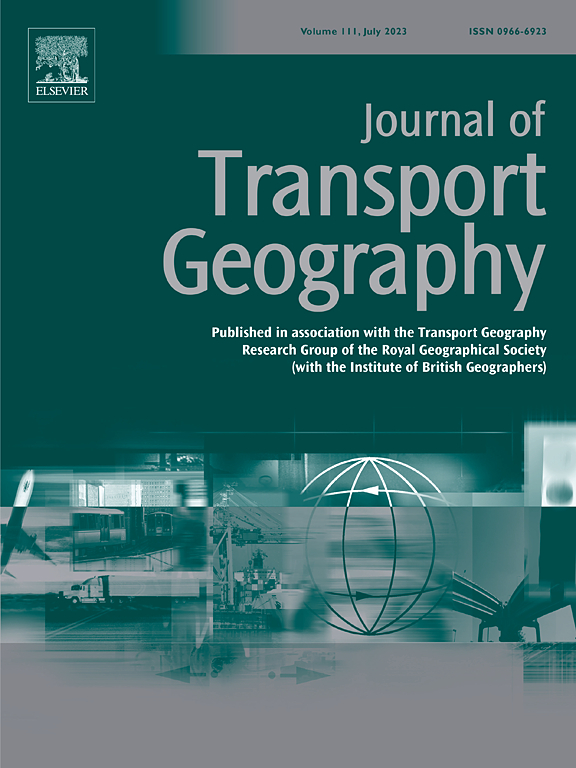房间里的大象长途航空服务与气候变化
IF 6.3
2区 工程技术
Q1 ECONOMICS
引用次数: 0
摘要
本文扩展了之前研究禁止(超级)短途航班对气候变化的影响。从全球所有定期客运航班来看,我们的研究结果证实,针对超短途航班的政策对气候的影响非常有限。少于 500 公里的航班占航班总数的 26.7%,但仅占燃料消耗量的 5.2%;而 4000 公里或以上的航班仅占航班总数的 5.1%,但占燃料消耗量的 39.0%。如果将结果按地区和国家细分,长途航班所消耗的燃料比例似乎因社会、政治、经济和地理因素(包括偏远程度)而异。在国家层面,燃料消耗量与国内生产总值高度相关,但长途航班的相关性较低,这可能是因为长途航班在地理位置上具有很强的选择性,并非所有国家都能提供长途航班服务。我们还发现,自 20 世纪 90 年代中期以来,长途航班的增长速度(+163% 座公里)远高于超短途航班(+28%)。这些发现具有重要的政策意义,表明在航空气候政策中,"避免 "战略应比 "转移 "和 "改善 "战略受到更多关注。本文章由计算机程序翻译,如有差异,请以英文原文为准。
The elephant in the room: Long-haul air services and climate change
This paper extends previous research that has examined the impact of banning (super) short-haul flights on climate change. Looking at all scheduled passenger flights worldwide, our results confirm that policies focused on super short-haul flights would have very limited climate benefits. Flights of less than 500 km account for 26.7 % of flights but only 5.2 % of fuel burnt, while flights of 4000 km or more account for just 5.1 % of flights, but 39.0 % of fuel burnt. When the results are broken down by region and country, it appears that the share of fuel burnt by long-haul flights varies according to social, political, economic and geographical factors, including remoteness. While fuel burnt is highly correlated with GDP at the country level, this is less true for long-haul flights, arguably because long-haul services are so geographically selective that not all countries can be expected to host them. We also find that since the mid-1990s, the long-haul segment has grown much more rapidly (+163 % seat-km) than the super-short-haul one (+28 %). These findings have important policy implications and suggest that “avoid” strategies should receive more attention than “shift” and “improve” strategies in aviation climate policy.
求助全文
通过发布文献求助,成功后即可免费获取论文全文。
去求助
来源期刊

Journal of Transport Geography
Multiple-
CiteScore
11.50
自引率
11.50%
发文量
197
期刊介绍:
A major resurgence has occurred in transport geography in the wake of political and policy changes, huge transport infrastructure projects and responses to urban traffic congestion. The Journal of Transport Geography provides a central focus for developments in this rapidly expanding sub-discipline.
 求助内容:
求助内容: 应助结果提醒方式:
应助结果提醒方式:


